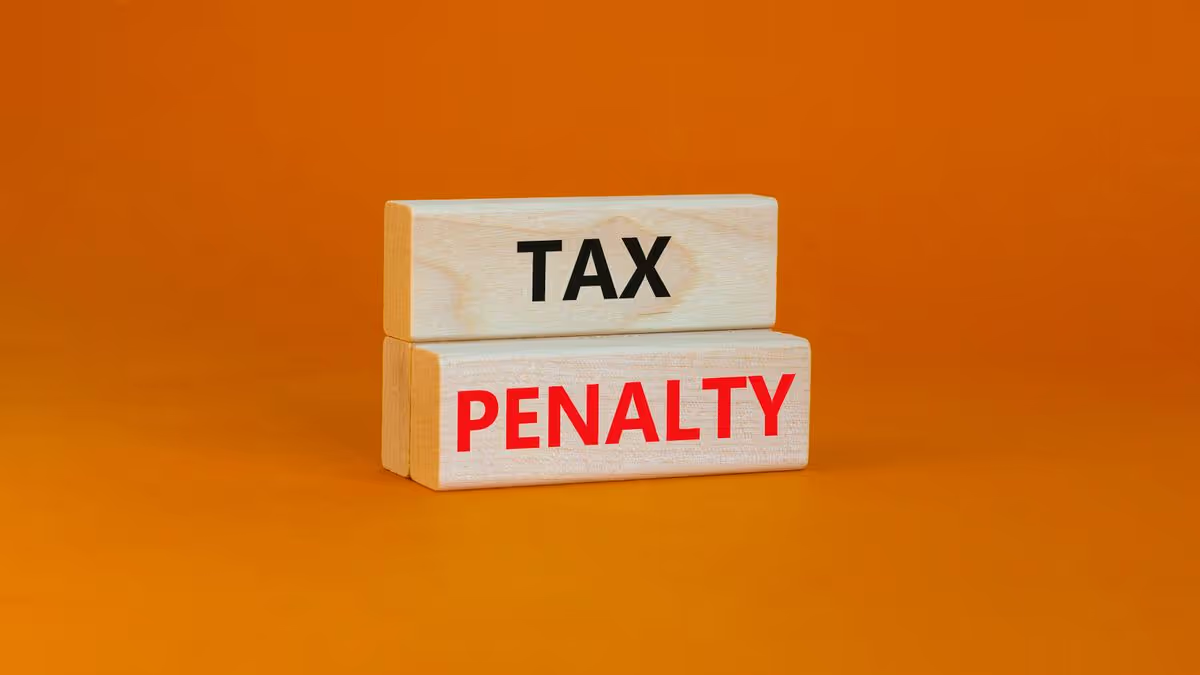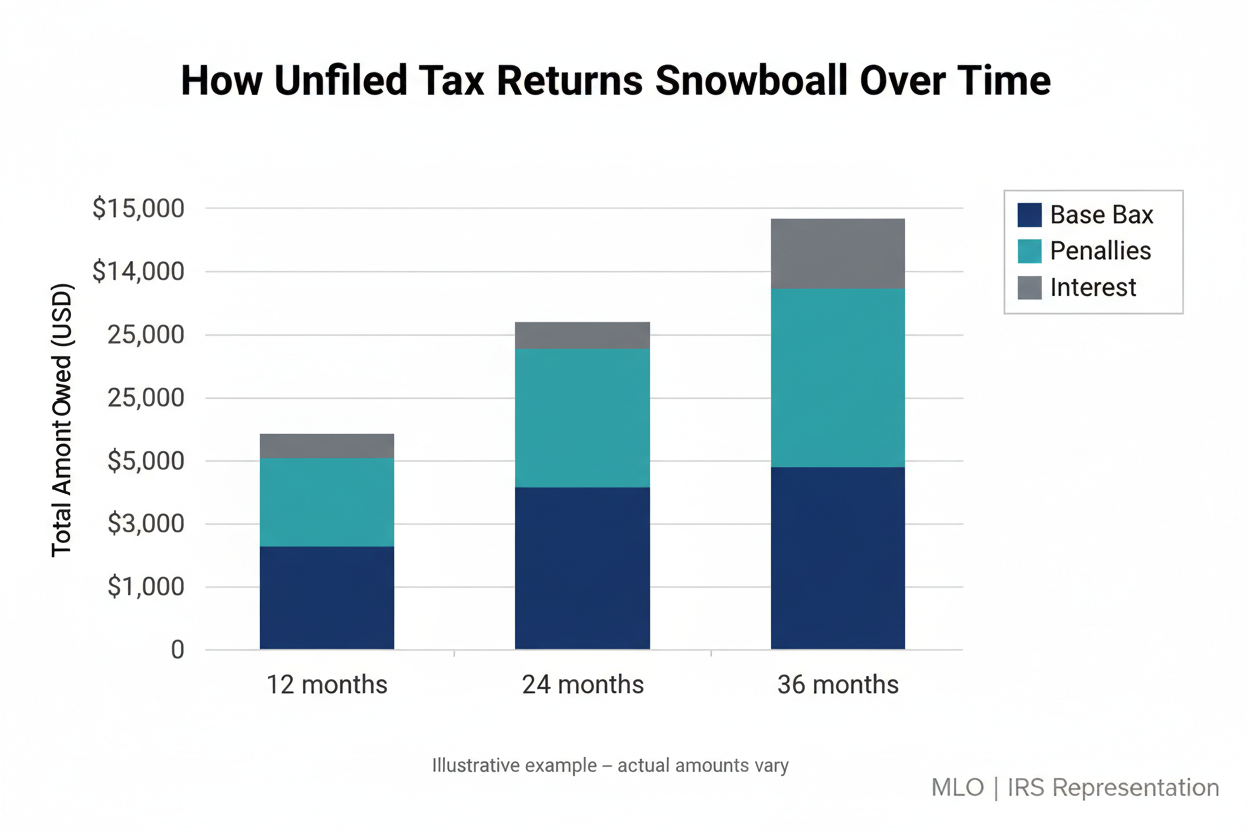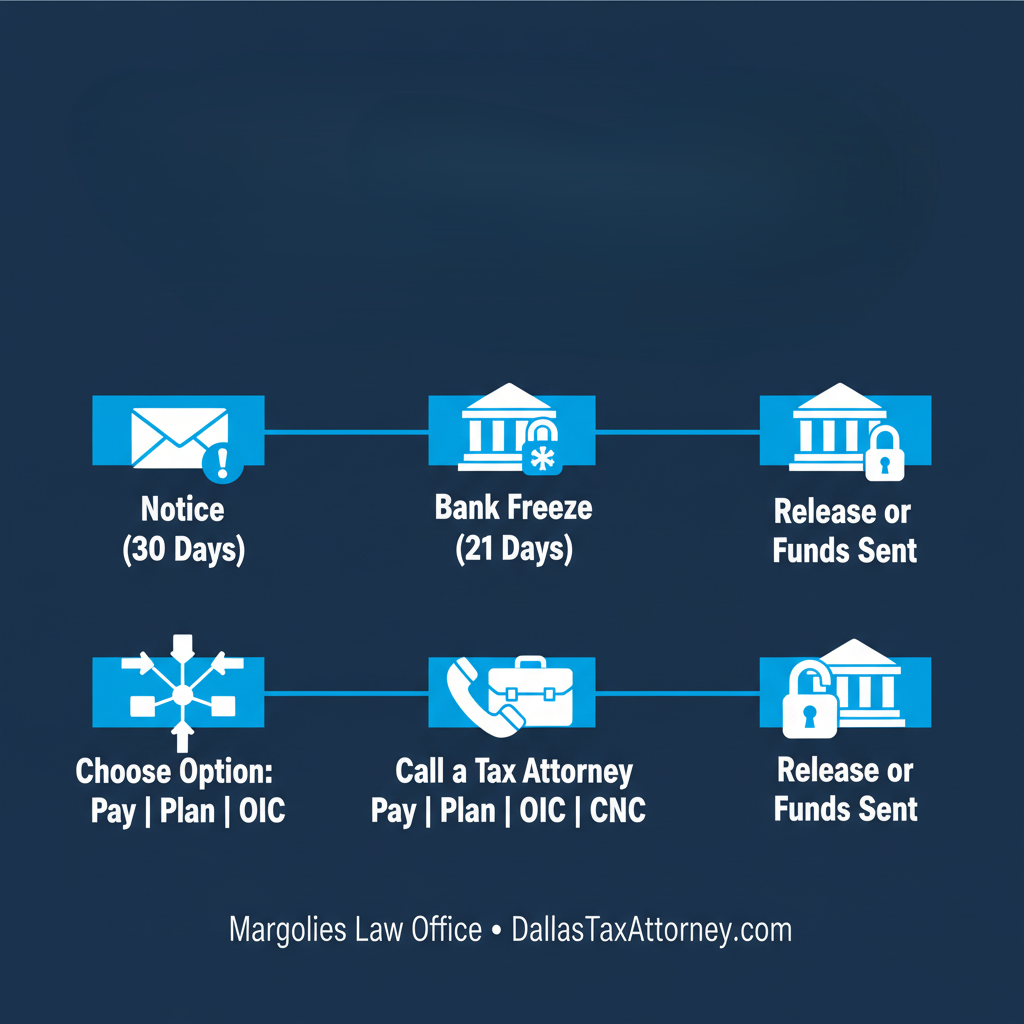Essential Guide to Avoiding IRS Tax Penalties

Worried about IRS tax penalties? This guide explains common penalties, their calculations, and how to avoid them. Learn what triggers these penalties and what actions you can take to minimize or prevent them.
Key Takeaways
- IRS tax penalties arise from failures such as not filing on time, not paying owed taxes, or submitting inaccurate returns, with common penalties including failure to file, failure to pay, and underpayment of estimated tax.
- Taxpayers can avoid penalties by filing returns on time, paying full tax amounts by their due dates, and making accurate estimated tax payments, while certain safe harbor rules and unique circumstances can provide relief from underpayment penalties.
- To dispute a penalty, taxpayers must present supporting documentation to the IRS, demonstrating reasonable cause for the dispute, and it’s advisable to consult a tax professional for guidance on managing and preventing penalties.
Overview of IRS Tax Penalties
IRS tax penalties are financial charges imposed on taxpayers for various infractions, such as not filing tax returns on time, not paying owed taxes, or submitting inaccurate returns. These penalties are designed to encourage compliance with tax laws and ensure that the tax system functions smoothly. The most common types of IRS charges include failure to file, failure to pay, and underpayment of estimated tax.
Receiving an official letter from the IRS outlining penalties can be daunting. However, these notifications help explain the reasons behind the penalties and guide corrective actions.
Common mistakes leading to these penalties include underestimating quarterly payments and missing filing deadlines, which can significantly increase the amount owed and lead to greater tax liability.
Failure to File Penalty
The failure to file a penalty is imposed when a taxpayer does not submit their tax return by the due date without a valid reason. This penalty is calculated at a rate of 5% of the unpaid tax per month, capping at 25% after five months. If a return is submitted over 60 days late, the minimum penalty is the lesser of $485 or the total tax due, increasing to $450 for returns due after January 1, 2023.
To sidestep this penalty, file your tax return by the due date or request an extension if necessary to avoid a penalty. Staying proactive and organized can prevent the hassle of extra charges and future penalties and interest.
Failure to Pay Penalty
The failure to pay penalty is incurred when the owed taxes are not paid by the due date. This penalty accrues at a rate of 0.5% of the unpaid tax per month or part of a month, up to a maximum of 25% of the total tax owed. The penalty is calculated based on the amount owed and continues to accumulate monthly until the tax is fully paid.
Pay the full amount of taxes owed by the due date to avoid this penalty. If full payment isn’t possible, consider setting up a payment plan with the IRS to minimize additional penalties and interest. These steps can help you manage your tax liabilities more efficiently.
Underpayment of Estimated Tax Penalty
Underpayment of estimated taxes occurs when taxpayers fail to pay enough taxes throughout the year, either through tax withholding or estimated payments. This penalty is assessed based on how much you should have paid quarterly versus what you actually paid, factoring in the underpayment rate for that period. For taxpayers with an adjusted gross income exceeding $150,000, the penalty can be avoided by paying at least 110% of the previous year’s tax.
Making accurate estimated tax payments helps avoid this penalty. Self-employed individuals should ensure they pay estimated tax accurately, aligning their quarterly taxes with either 90% of their current year’s tax or 100% of the previous year’s tax liability.
Safe Harbor Rules
Safe harbor rules provide conditions under which taxpayers can avoid underpayment penalties. For example, if the amount you owe is less than $1,000 after subtracting withholding and refundable credits, or if you have paid at least 90% of the tax for the current year, you can avoid penalties. Sole proprietors, partners, and S corporation shareholders must make estimated tax payments quarterly to avoid penalties.
Farmers and fishers are exempt from making estimated tax payments if at least two-thirds of their gross income comes from farming or fishing. Additionally, factors such as changing tax filing status or earning income later in the year can lead to a reduced underpayment penalty.
Interest on Penalties
Interest on a penalty accrues monthly until the total amount owed is fully paid. This interest is calculated daily from the original due date until full payment is made, compounding daily. The IRS adjusts interest rates quarterly based on the federal short-term rate plus an added percentage. As of Q4 2024, the interest rate on individual underpayments remains at 8%.
Knowing how interest on penalties works is essential for managing your tax obligations. Even if you can’t pay the full amount by the due date, making partial payments can reduce the interest and penalties owed.
How to Pay a Penalty
The IRS offers various methods to pay a penalty, including Direct Pay, Electronic Federal Tax Payment System (EFTPS), and payments by check or card. If you owe $50,000 or less in total tax, penalties, and interest, you can apply for a payment plan online. For short-term payments within 180 days, individuals can apply online without incurring a setup fee.
Long-term payment plans require a setup fee, which varies based on the payment method and taxpayer status. Taxpayers can check their account balances and payment histories via the IRS Online Account. If a payment plan lapses due to default, a reinstatement fee may be needed to reactivate it.
Reducing or Removing Penalties
Certain unusual events, such as serious illness or natural disasters, can lead to a waiver of the underpayment penalty. The IRS may consider unique circumstances like these to waive penalties on late filings or payments. If taxpayers demonstrate they exercised ordinary care but were still unable to file or pay on time, they may qualify for penalty relief, provided it is not willful neglect and they do not owe a penalty.
The process for requesting penalty relief can begin via a phone call to the IRS with the appropriate notice in hand. Supporting documents, such as medical records or evidence of natural disasters, can strengthen a request for penalty abatement.
Disputing a Penalty
To contest a penalty, contact the IRS via phone or send a letter explaining your reasons for disputing the charge. Include supporting documentation with your signed letter and reference the specific notice or letter from the IRS.
The burden of proof often lies with the taxpayer to demonstrate reasonable cause and good faith when disputing penalties. Understanding the specific penalty provisions is crucial for challenging or avoiding penalties.
Special Considerations for Self-Employed Individuals
Self-employed taxpayers must account for Social Security and Medicare taxes. Quarterly tax payments can be adjusted if their income fluctuates significantly throughout the year. The qualified business income deduction allows self-employed individuals to potentially reduce their taxable income by up to 20%.
Late Filing Penalties for Businesses
The combined penalty for failure to file and failure to pay can reach a maximum of 47.5% of the total tax owed. S-corporations and partnerships incur a penalty of $195 for each shareholder or partner monthly, capped at 12 months.
How to Avoid IRS Tax Penalties
To avoid penalties, ensure timely and accurate filing of returns and payments. Staying organized and filing by the due date helps minimize penalties. Even partial payments made on time can reduce additional penalties.
Keeping detailed records throughout the year can help prevent errors that might lead to penalties in the preceding tax year. Self-employed individuals should ensure they make quarterly estimated tax payments accurately or on time to avoid underpayment penalties.
Businesses must comply with payroll tax regulations and pay taxes on time to avoid significant penalties.
Applying for a Payment Plan
Establishing a payment plan with the IRS can help mitigate additional penalties if you cannot pay your full tax bill. You can apply for a payment plan online through the IRS payment agreement tool. Changing your monthly payment amount or due date is possible using the IRS online payment agreement tool.
Payments to the IRS are first applied to outstanding taxes, then to penalties, and finally to any interest owed.
Getting Professional Help
Consulting a tax professional can significantly aid taxpayers in navigating IRS penalties and ensuring adherence to tax regulations. Tax advisors must be knowledgeable in specific tax matters to provide reasonable and effective guidance to taxpayers.
Reliance on a tax professional’s advice should be reasonable; ensure all necessary information is provided for accurate evaluation.
Contact Margolies Law Office for Help
If you're dealing with a legal issue and need expert assistance, contacting Margolies Law Office can provide the support you need. Common legal challenges, such as disputes, family matters, or business concerns, can be overwhelming. Having an experienced attorney by your side ensures you understand your rights, options, and next steps. We specializes in guiding clients through complex legal matters with precision and care, helping you resolve issues effectively.
To avoid costly mistakes or prolonged disputes, it's essential to take action promptly. By reaching out to Margolies Law Office, you ensure that you have professional support in navigating your legal challenges. Whether you're facing a personal or business-related issue, consulting with us can lead to a favorable outcome, providing you with the expertise needed to handle your case efficiently.
Summary
Understanding IRS tax penalties and taking proactive measures to avoid them is essential for managing your financial health. By filing your tax returns accurately and on time, making timely payments, and understanding the various types of penalties, you can significantly reduce your tax liability. Utilizing safe harbor rules and setting up payment plans when necessary can also help you avoid additional charges and interest.
Remember, staying organized and seeking professional help when needed can make a substantial difference in managing your tax obligations. Taking these steps not only helps you avoid penalties but also ensures that you remain compliant with IRS regulations, thereby safeguarding your financial future.
Frequently Asked Questions
What is the failure to file penalty?
The failure to file penalty is a significant charge levied on taxpayers who neglect to submit their tax return by the deadline without valid justification. Specifically, it is assessed at 5% of the unpaid tax per month, reaching a maximum of 25% after five months.
How can I avoid underpayment of estimated tax penalties?
To avoid underpayment of estimated tax penalties, ensure your quarterly payments meet either 90% of your current year's tax or 100% of your previous year's tax liability. This approach will help you stay compliant and avoid penalties.
What should I do if I cannot pay my taxes in full by the due date?
If you cannot pay your taxes in full by the due date, it is advisable to set up a payment plan with the IRS to manage your tax debt effectively and minimize extra penalties and interest. This proactive approach will help you maintain your financial stability.
Can penalties be waived under special circumstances?
Yes, penalties can be waived under special circumstances such as serious illness, natural disasters, or the death of a family member, provided that supporting documentation is submitted to support your request for penalty abatement.

.webp)


